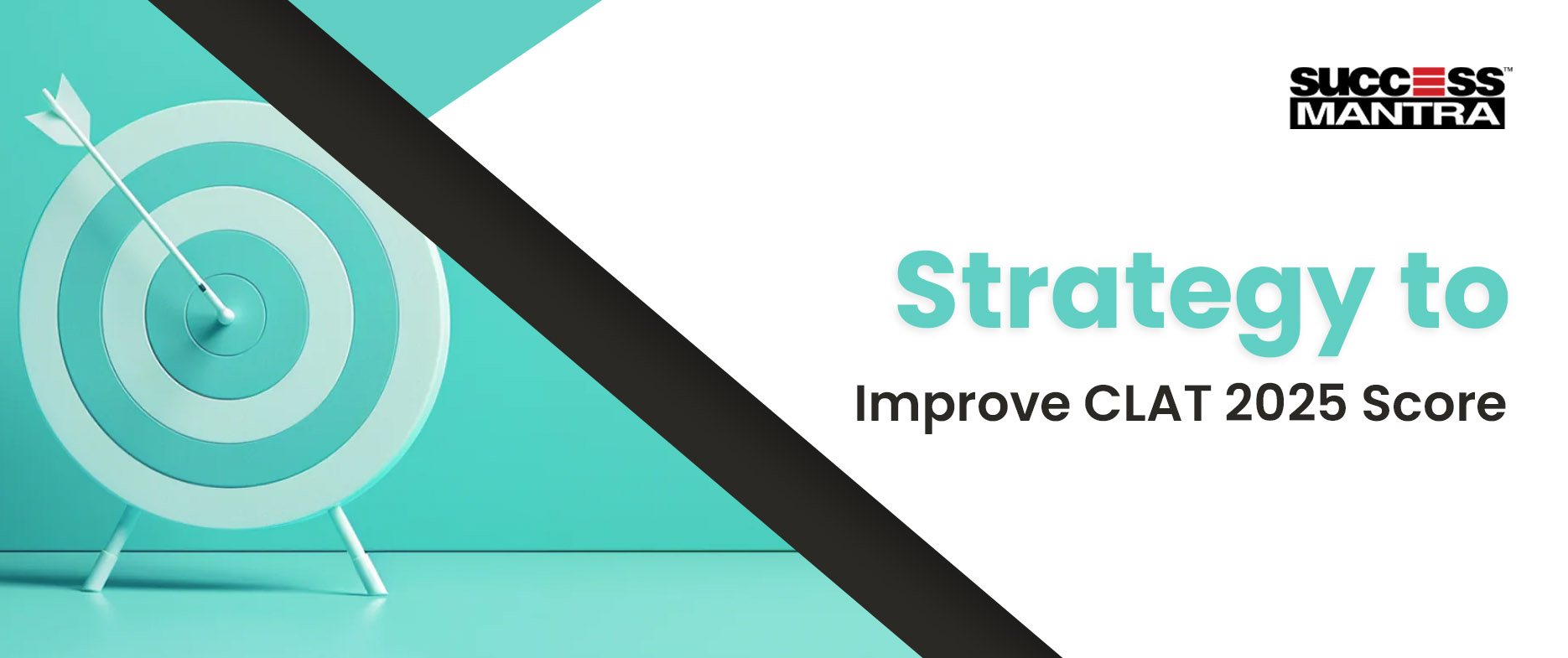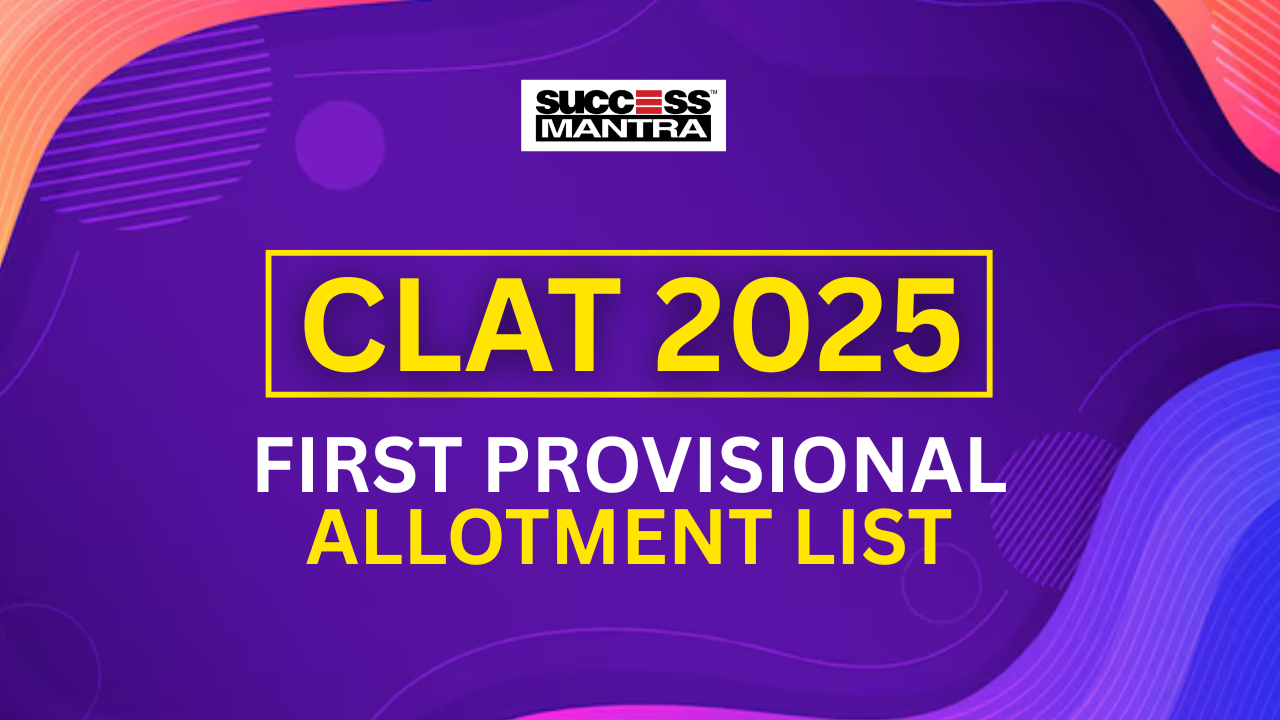
How to improve you CLAT Score
How to improve you CLAT Score
Embarking on the journey to crack the CLAT is akin to setting sail on a vast ocean, with your dreams and aspirations guiding your course. Each mock test you take is a stepping stone, a chance to refine your strategies and hone your skills. Just like a seasoned sailor prepares meticulously for every voyage, you too can master the art of excelling in CLAT with the right preparation and mindset. Here, we present a comprehensive guide to help you score higher in your CLAT and avoid common pitfalls along the way.
Tips to Score Higher in CLAT 2025
Understand the Exam Pattern and Create a Study Schedule:
Familiarize yourself with the CLAT exam pattern, including the types of questions, marking scheme, and time allocation. This foundational knowledge will help you manage your time effectively during the test. Also, develop a structured study plan that covers all sections of the exam. Allocate specific time slots for each subject and stick to your schedule diligently.
Focus on Weak Areas and Enhance Reading Speed:
Pay extra attention to the sections or topics where you consistently score lower. Use study materials, online resources, and coaching classes to strengthen your understanding and skills in these areas. The CLAT exam includes lengthy passages and comprehension questions. Practice reading newspapers, magazines, and online articles to improve your reading speed and comprehension skill.
Staying up- to-date with Current Affairs
This section covers a broad range of topics, including national and international events, sports, politics, economics, and social issues. It requires aspirants to stay updated with the latest news and developments, reflecting their readiness to engage with contemporary legal and social contexts. A strong performance in this section demonstrates a candidate's alertness, critical thinking, and ability to understand and interpret current events—skills that are crucial for a successful legal career. If you go through the previous year's questions, you will realize that current affairs can be from very recent happenings to one that is 1 year or 1.5 years old.
Application Of the techniques you have learned
When working with Previous Year's CLAT Question Papers, many of you use ineffective techniques, such as marking answers based on assumptions rather than applying the concepts you've learned. This might be due to time constraints or a reluctance to apply the concepts. Consequently, this approach can lead to incorrect answers and a loss of marks. Always apply the concepts you've learned instead of relying on assumptions, as failing to do so can significantly harm your score.
Each and Every Section Matters
1. Quantitative Techniques
This section includes a variety of mathematical topics such as percentages, profit and loss, ratio and proportion, averages, time and work, time, speed and distance, simple and compound interest, number systems, and data interpretation involving tables, bar graphs, line charts, and pie charts. The section tests not just rote learning of formulas, but the ability to apply logical reasoning and analytical thinking to arrive at accurate solutions quickly. Mastery in this section can greatly enhance a candidate's overall score.
2. Legal Aptitude
This section includes passages that present legal issues, doctrines, and scenarios, requiring candidates to comprehend and analyze the information to answer questions accurately. Topics typically covered include constitutional law, contract law, criminal law, torts, and international law. The questions are designed to test a candidate's ability to apply legal reasoning to real-world situations, understand and interpret statutes. Approximately 28-32 questions are asked from this section. This is highly important section.
3. Logical Reasoning
This section involves passages followed by questions that test the candidate's capacity to understand and evaluate arguments, identify assumptions, draw inferences, and deduce conclusions. The topics included typically cover a range of logical principles such as arguments, conclusions, premises, assumptions, strengthening and weakening arguments, syllogisms, analogies, logical sequences, and patterns. Approximately 22-26 questions are asked from this section, it’s advised to not skip this section. It’s one of the most interesting section.
4. English Language
Preparing for the CLAT English section is important and includes three main parts: grammar, vocabulary, and reading comprehension. This part makes up 20% of your final score. You'll need to focus on things like filling in blanks, checking spelling, using idioms, rearranging sentences, correcting them, and understanding passages. For the Reading Comprehension section when you read passages, try to connect them to what you already know. Look for the main idea, which is like the topic of the passage.
Time Management
A comprehensive assessment of your test-taking skills enables you to develop a targeted strategy tailored to your strengths and weaknesses. This is crucial, as recognizing whether you struggle with time management or conceptual understanding will allow you to use your preparation time efficiently before the competitive exam.
1. Unattempted Question: Lack of time or Lack of knowledge
If you couldn't complete the questions due to insufficient time, meaning you could have solved them with more time, you need to improve your time management. This can be done by working more efficiently within each section or by finding quicker methods to solve the questions. However, if the questions were left unanswered due to a lack of knowledge, you need to devote more time to gaining a clearer understanding of the relevant concepts.
2. Incorrect Question: Silly mistake or Lack of knowledge
Inadvertent mistakes often occur due to poor time management or the intense pressure of a competitive setting. Keep in mind that the stress will only intensify on the actual exam day; you can't rely on that day to fix everything magically. Just as a failed hunt leads to days of hunger, a simple mistake can derail days of progress. It's crucial to address these errors seriously. The key is to focus on the present and practice extensively in simulated environments to minimize such mistakes.
3. Correctly Answered Questions
Now some might be satisfied if they are getting a good score on the mock tests for CLAT. however, remember that till the day you’re practising there is still scope for improvement. Work on more efficient strategy and solving techniques so that you’ve more time in hand for seemingly difficult questions.
Conclusion
Success in CLAT mocks requires a blend of strategic planning, consistent practice, and a positive attitude. By following these tips and avoiding common mistakes, you can enhance your preparation and boost your confidence. Remember, every mock test is a stepping stone towards your ultimate goal. Embrace the journey, learn from each experience, and sail towards your dreams with unwavering determination. Good luck!













Robertquiem
<a href=https://pint77.com> Pinterest advertising for the USA and English-speaking countries. Etsy, amazon, shopify, ebay</a>
Jameschews
Повысьте доверие и привлеките клиентов с нашим добровольным сертификатом соответствия! Наличие сертификата соответствия позволяет клиентам быть уверенными в том, что они приобретают безопасный и надежный продукт - <a href=https://aliexpres.sale/keshbek/deklaraciya-sootvetstviya-gost-r-s-garantiej-legitimnosti-nyuansy-polucheniya-preimushhestva.html>декларация соответствия гост р.</a>
Evelynzerge
<a href=https://pint77.com> Pinterest advertising for the USA and English-speaking countries. Etsy, amazon, shopify, ebay</a>
xwwsbvmmyq
How to improve you CLAT Score <a href="http://www.g22871j92284ynnme2x54lpa8z6s8pbes.org/">axwwsbvmmyq</a> [url=http://www.g22871j92284ynnme2x54lpa8z6s8pbes.org/]uxwwsbvmmyq[/url] xwwsbvmmyq http://www.g22871j92284ynnme2x54lpa8z6s8pbes.org/
ovshjbpkx
How to improve you CLAT Score [url=http://www.gv1q3r24r95e87h8i468z21ub7qtjq5ds.org/]uovshjbpkx[/url] <a href="http://www.gv1q3r24r95e87h8i468z21ub7qtjq5ds.org/">aovshjbpkx</a> ovshjbpkx http://www.gv1q3r24r95e87h8i468z21ub7qtjq5ds.org/
regemkpyfx
How to improve you CLAT Score <a href="http://www.gg7s21x9g44g2y5v9xdv5d0dcf956a37s.org/">aregemkpyfx</a> regemkpyfx http://www.gg7s21x9g44g2y5v9xdv5d0dcf956a37s.org/ [url=http://www.gg7s21x9g44g2y5v9xdv5d0dcf956a37s.org/]uregemkpyfx[/url]
vflmoevk
Latest News on Education & LAW Exams Blogs | Success Mantra vflmoevk http://www.g4h1s2li5r930x62qh3905j1dusv2s8fs.org/ <a href="http://www.g4h1s2li5r930x62qh3905j1dusv2s8fs.org/">avflmoevk</a> [url=http://www.g4h1s2li5r930x62qh3905j1dusv2s8fs.org/]uvflmoevk[/url]
jjsjynmql
Latest News on Education & LAW Exams Blogs | Success Mantra [url=http://www.g05m5016gu7296v85w7glob7d7dkej5zs.org/]ujjsjynmql[/url] jjsjynmql http://www.g05m5016gu7296v85w7glob7d7dkej5zs.org/ <a href="http://www.g05m5016gu7296v85w7glob7d7dkej5zs.org/">ajjsjynmql</a>
mourpay martins
i was heartbroken because I had a very small manhood , not nice to satisfy a woman, I had so many relationships cut off because of my situation, I have used so many products which i found online but none could offer me the help I searched for. I saw some comments about this specialist called Dr Moses Buba and decided to email him at buba.herbalmiraclemedicine@gmail.com so I decided to give his herbal product a try. i emailed him and he got back to me, he gave me some comforting words with his herbal pills for manhood Enlargement, Within 14days of it, i began to feel the enlargement of my manhood , " and now it just 2 weeks of using his products my manhood is about 9 inches longer and i am so happy, contact DR Moses Buba now via email buba.herbalmiraclemmedicine@gmail.com or his Whatsapp number +2349060529305 . contact him through his Facebook page : https://www.facebook.com/profile.php?id=61559577240930 may God reward you for your good work. HE ALSO RENDERED THE FOLLOWING ........1. BRING YOUR EX BACK........... 2. LOTTERY SPELL......... 3. PREGNANCY SPELL ..........4. WEAK ERECTION ............5. POOR EJACULATION..........
ffihvrkbqc
Latest News on Education & LAW Exams Blogs | Success Mantra [url=http://www.g2z9vt0497fc175eob2vt5fx7ji3w414s.org/]uffihvrkbqc[/url] ffihvrkbqc http://www.g2z9vt0497fc175eob2vt5fx7ji3w414s.org/ <a href="http://www.g2z9vt0497fc175eob2vt5fx7ji3w414s.org/">affihvrkbqc</a>
tmgglvdzyp
Latest News on Education & LAW Exams Blogs | Success Mantra tmgglvdzyp http://www.g42f4do9o0tb7fj32714wvwu4l1pi395s.org/ [url=http://www.g42f4do9o0tb7fj32714wvwu4l1pi395s.org/]utmgglvdzyp[/url] <a href="http://www.g42f4do9o0tb7fj32714wvwu4l1pi395s.org/">atmgglvdzyp</a>
gwjnbndjql
Latest News on Education & LAW Exams Blogs | Success Mantra [url=http://www.gk20z4u865428h3u6pxy7uy8slzd675fs.org/]ugwjnbndjql[/url] <a href="http://www.gk20z4u865428h3u6pxy7uy8slzd675fs.org/">agwjnbndjql</a> gwjnbndjql http://www.gk20z4u865428h3u6pxy7uy8slzd675fs.org/
qxgrctblh
Latest News on Education & LAW Exams Blogs | Success Mantra [url=http://www.g0so4du1m06lg25n73pnoz99vp3j3060s.org/]uqxgrctblh[/url] <a href="http://www.g0so4du1m06lg25n73pnoz99vp3j3060s.org/">aqxgrctblh</a> qxgrctblh http://www.g0so4du1m06lg25n73pnoz99vp3j3060s.org/
tdxyqvmf
Latest News on Education & LAW Exams Blogs | Success Mantra [url=http://www.g0jk7l79943hsj9i08ar92z0l97rbv3ns.org/]utdxyqvmf[/url] tdxyqvmf http://www.g0jk7l79943hsj9i08ar92z0l97rbv3ns.org/ <a href="http://www.g0jk7l79943hsj9i08ar92z0l97rbv3ns.org/">atdxyqvmf</a>
cdmjmzbnwt
Latest News on Education & LAW Exams Blogs | Success Mantra <a href="http://www.ge7n13d4y5297l1r1d9l31sa90trk3hhs.org/">acdmjmzbnwt</a> cdmjmzbnwt http://www.ge7n13d4y5297l1r1d9l31sa90trk3hhs.org/ [url=http://www.ge7n13d4y5297l1r1d9l31sa90trk3hhs.org/]ucdmjmzbnwt[/url]
hevcsjvdo
Latest News on Education & LAW Exams Blogs | Success Mantra [url=http://www.gb131q592ph2jszge1io7c9767gh80e9s.org/]uhevcsjvdo[/url] hevcsjvdo http://www.gb131q592ph2jszge1io7c9767gh80e9s.org/ <a href="http://www.gb131q592ph2jszge1io7c9767gh80e9s.org/">ahevcsjvdo</a>
blzinhzoj
Latest News on Education & LAW Exams Blogs | Success Mantra <a href="http://www.g646p5gm1v7t51cc261da242bcsq9go2s.org/">ablzinhzoj</a> blzinhzoj http://www.g646p5gm1v7t51cc261da242bcsq9go2s.org/ [url=http://www.g646p5gm1v7t51cc261da242bcsq9go2s.org/]ublzinhzoj[/url]
hcqdstzvj
Latest News on Education & LAW Exams Blogs | Success Mantra hcqdstzvj http://www.gvtt33z3ekp9607p8lp31yu330hsj816s.org/ <a href="http://www.gvtt33z3ekp9607p8lp31yu330hsj816s.org/">ahcqdstzvj</a> [url=http://www.gvtt33z3ekp9607p8lp31yu330hsj816s.org/]uhcqdstzvj[/url]
zhwrbogxer
Latest News on Education & LAW Exams Blogs | Success Mantra <a href="http://www.g79g6l8ww129762ucws6bk8yoc3l02s5s.org/">azhwrbogxer</a> [url=http://www.g79g6l8ww129762ucws6bk8yoc3l02s5s.org/]uzhwrbogxer[/url] zhwrbogxer http://www.g79g6l8ww129762ucws6bk8yoc3l02s5s.org/
xwlvnsv
Latest News on Education & LAW Exams Blogs | Success Mantra xwlvnsv http://www.gm62l1b6gzuzpu1j974u61c5t3i33w26s.org/ <a href="http://www.gm62l1b6gzuzpu1j974u61c5t3i33w26s.org/">axwlvnsv</a> [url=http://www.gm62l1b6gzuzpu1j974u61c5t3i33w26s.org/]uxwlvnsv[/url]
svvqtokd
Latest News on Education & LAW Exams Blogs | Success Mantra svvqtokd http://www.g7s3400sojp9zjg93486p0n9j7os6k0ys.org/ [url=http://www.g7s3400sojp9zjg93486p0n9j7os6k0ys.org/]usvvqtokd[/url] <a href="http://www.g7s3400sojp9zjg93486p0n9j7os6k0ys.org/">asvvqtokd</a>
ytcwstdwif
Latest News on Education & LAW Exams Blogs | Success Mantra [url=http://www.g91marui4dq216f2j598w0xj34ig559us.org/]uytcwstdwif[/url] <a href="http://www.g91marui4dq216f2j598w0xj34ig559us.org/">aytcwstdwif</a> ytcwstdwif http://www.g91marui4dq216f2j598w0xj34ig559us.org/
hwdtbtvg
Latest News on Education & LAW Exams Blogs | Success Mantra <a href="http://www.g5gr205b8b1q0xd007e66fvx42c0q8fjs.org/">ahwdtbtvg</a> hwdtbtvg http://www.g5gr205b8b1q0xd007e66fvx42c0q8fjs.org/ [url=http://www.g5gr205b8b1q0xd007e66fvx42c0q8fjs.org/]uhwdtbtvg[/url]
vhdqvmysqt
Latest News on Education & LAW Exams Blogs | Success Mantra vhdqvmysqt http://www.g5v17lti1w1u938escb6a675ni2f382ts.org/ <a href="http://www.g5v17lti1w1u938escb6a675ni2f382ts.org/">avhdqvmysqt</a> [url=http://www.g5v17lti1w1u938escb6a675ni2f382ts.org/]uvhdqvmysqt[/url]
vzqbdpch
Latest News on Education & LAW Exams Blogs | Success Mantra [url=http://www.gif364huy46133xaecf6q7c3k3w4a813s.org/]uvzqbdpch[/url] <a href="http://www.gif364huy46133xaecf6q7c3k3w4a813s.org/">avzqbdpch</a> vzqbdpch http://www.gif364huy46133xaecf6q7c3k3w4a813s.org/
xsjmvviq
Latest News on Education & LAW Exams Blogs | Success Mantra <a href="http://www.g5xv9a96kd46t9s5jm7251ub27isu1o6s.org/">axsjmvviq</a> [url=http://www.g5xv9a96kd46t9s5jm7251ub27isu1o6s.org/]uxsjmvviq[/url] xsjmvviq http://www.g5xv9a96kd46t9s5jm7251ub27isu1o6s.org/
gsexfzsmow
Latest News on Education & LAW Exams Blogs | Success Mantra [url=http://www.g7936y11i85d2beae5fht5e320e8f4fbs.org/]ugsexfzsmow[/url] gsexfzsmow http://www.g7936y11i85d2beae5fht5e320e8f4fbs.org/ <a href="http://www.g7936y11i85d2beae5fht5e320e8f4fbs.org/">agsexfzsmow</a>
vsizrdrlk
Latest News on Education & LAW Exams Blogs | Success Mantra <a href="http://www.g91z9kh998p53np430l50ms2p7vw7aoys.org/">avsizrdrlk</a> vsizrdrlk http://www.g91z9kh998p53np430l50ms2p7vw7aoys.org/ [url=http://www.g91z9kh998p53np430l50ms2p7vw7aoys.org/]uvsizrdrlk[/url]
lgtygqf
Latest News on Education & LAW Exams Blogs | Success Mantra <a href="http://www.g08138zimhe4e77738m5e6o4xhi7mrx9s.org/">algtygqf</a> lgtygqf http://www.g08138zimhe4e77738m5e6o4xhi7mrx9s.org/ [url=http://www.g08138zimhe4e77738m5e6o4xhi7mrx9s.org/]ulgtygqf[/url]